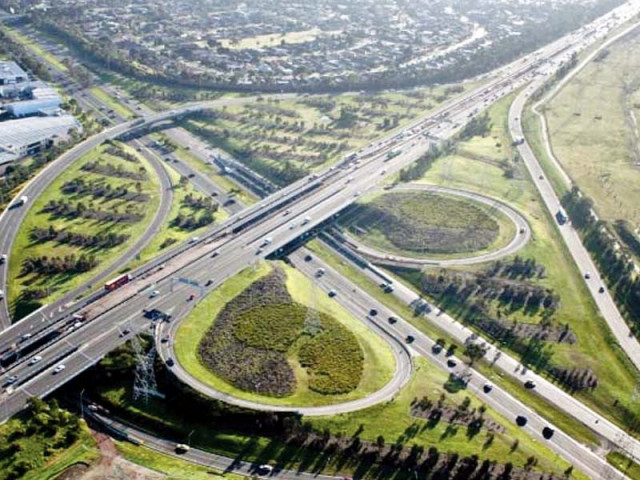IMF reiterates hike in taxes, tariff
Official outlines enhancing revenue, ending quasi-fiscal operations as objectives

Unmoved by increasing calls to review its “harsh” conditions, the International Monetary Fund (IMF) on Monday urged Pakistan to implement tax and energy reforms aimed at bringing down a very high public debt and making power sector financially viable.
The IMF programme objectives continue to be part of the agenda that has to be addressed during the programme implementation, said IMF Resident Representative Teresa Daban Sanchez on Monday.
She outlined enhancing revenues and ending quasi-fiscal operations as core objectives of the IMF programme.
Sanchez was speaking at a webinar arranged by the Pakistan Institute of Development Economics (PIDE) under its series of “Future of Pakistan Economy with IMF Programme”.
The local IMF head repeatedly underlined the need for taking taxation and power tariff measures agreed with the IMF last month despite an ongoing third wave of Covid-19 and a call by Pakistan’s new Finance Minister Shaukat Tarin, other policy experts and politicians to renegotiate the IMF deal.
“Changes of finance ministers will not affect our approach and we are ready to work with Shaukat Tarin,” she said while responding to a question whether the Fund would renegotiate the programme. To another question on whether the three-year programme could be extended in case the IMF relaxed the time frame to implement the conditions, Sanchez said “there is still plenty of time to do many things and there is a need to focus on getting things done.”
The three-year IMF programme is going to expire in September next year.
Tarin, accompanied by Special Assistant to Prime Minister on Revenue Dr Waqar Masood, on Monday arrived in the Q-block and formally assumed his responsibilities.
“I will soon announce my priorities and have taken briefing on next year’s budget,” said Tarin in brief interaction with media after taking charge of office.
Masood may get a new role in the Q-block after his retirement as finance secretary over four years ago. The IMF country head said that general sales tax and personal income tax reforms should be implemented in the next fiscal year, “as we see an improvement in economy”.
“Power sector is in a situation that is very challenging and it requires continued reforms and taxation reforms also need to be continued,” said Sanchez.
“There are some reforms that need to be done whether Covid or no Covid like amendments to the National Electric Power Regulatory Authority (Nepra) and the State Bank of Pakistan (SBP) laws,” said the IMF country head.
The power sector “has become a micro critical issue and a lack of financial stability in the sector is affecting the economy”, she said.
The IMF local head again emphasised the need for implementing the circular debt management plan, which she said required aligning power tariffs with cost recovery, reduction in losses and automatic targeted subsidies.
The circular debt management plan seeks to increase electricity tariffs by Rs5.65 per unit or 36% within six months. Fiscal strategy needed to be sustainable, otherwise, it would pull Pakistan down in a very complicated manner, warned Sanchez. The public debt at 92.8% of GDP had increased to a level that was very high and required attention, she added.
“Pakistan’s 10% of tax-to-GDP ratio is one of the lowest in the world and it is very difficult to run a country of 220 million with this ratio,” said the resident representative.
However, the IMF has to share the blame for this ratio as increasing revenue is part of every IMF programme and it has yet continued compromising on tax targets and giving exemptions to the affluent class including tax amnesties during the course of programme implementation.
“The IMF has a very mechanical approach to increase taxes without understanding the impact of distorted tax policies on the economy like the distorted withholding tax that is killing the economy,” said PIDE Vice Chancellor Dr Nadeemul Haque, who is also a former IMF employee.
Former special finance secretary Mohsin Chandna and leading businessman Mohammad Bashir also criticised the IMF’s taxation policies.
Chandna, now serving as Inter-Provincial Coordination Secretary, urged the IMF to set realistic tax collection targets, saying the last two tax collection targets were highly unrealistic and being missed by wide margins.
“The programme performance is based on primary budget balance targets for making the debt sustainable and this has to be achieved through many instruments and revenue is the one,” said Sanchez. She said that Pakistan has to have an ambitious tax collection target.
For the next fiscal year, the government has projected Rs5.908 trillion tax target while the IMF has shown it at Rs5.963 trillion, which requires 27% growth and additional measures of around Rs600 billion.
“We feel that there is no ground reality in the new IMF policy for Pakistan and it looks the result of the direct interaction between the IMF and the FBR,” said Mohammad Bashir - a textile owner and member of Pakistan Business Council.
She guardedly supported central bank autonomy. “I am not an expert on central bank legislation but legal protection is a standard all over the world but it is limited to very few circumstances,” said Sanchez while commenting on a question on proposal to exempt the SBP from accountability.
“If the current policies are implemented, Pakistan can return to economic growth of 4%,” said Sanchez. To a question about 1.5% economic growth forecast by IMF this year as against Pakistan’s 3%, Teresa said that the economy was doing well and growth will probably be closer to what Pakistani authorities have announced.
Published in The Express Tribune, April 20th, 2021.
Like Business on Facebook, follow @TribuneBiz on Twitter to stay informed and join in the conversation.



















COMMENTS
Comments are moderated and generally will be posted if they are on-topic and not abusive.
For more information, please see our Comments FAQ